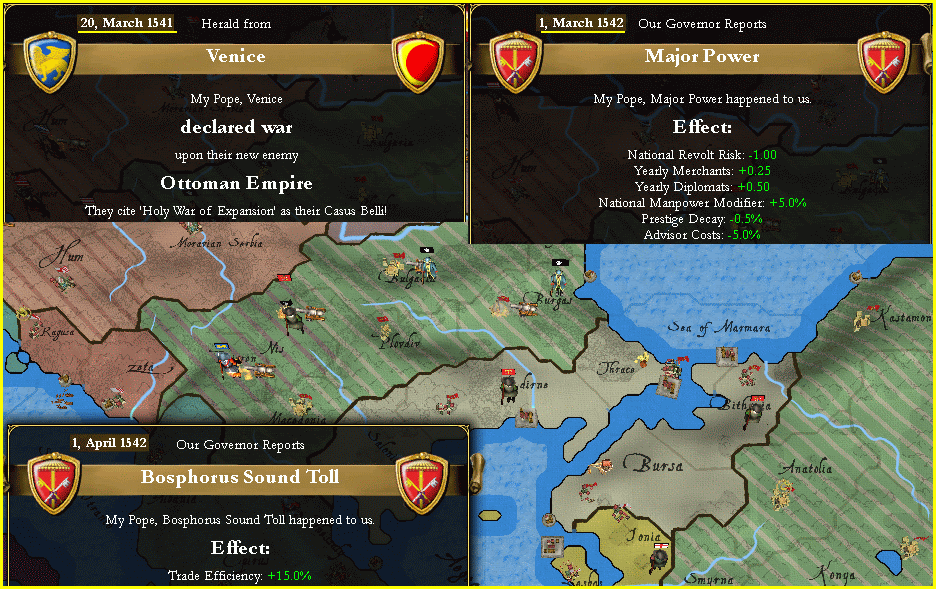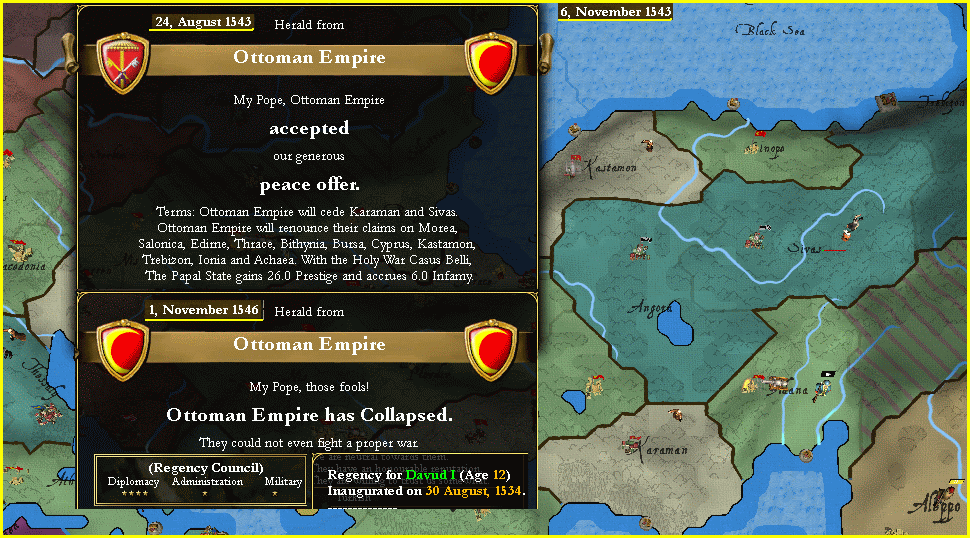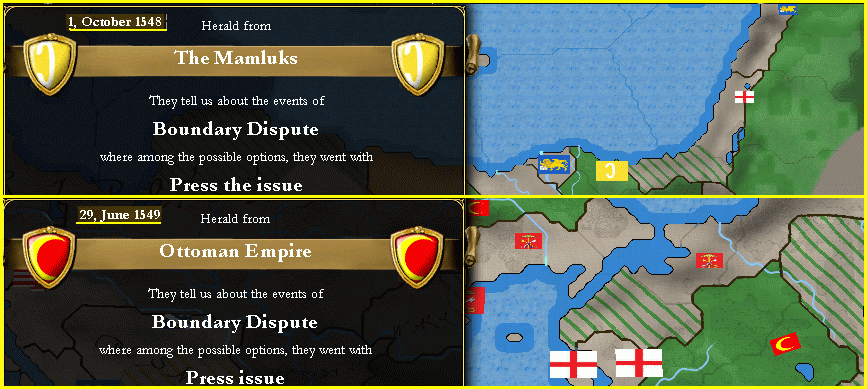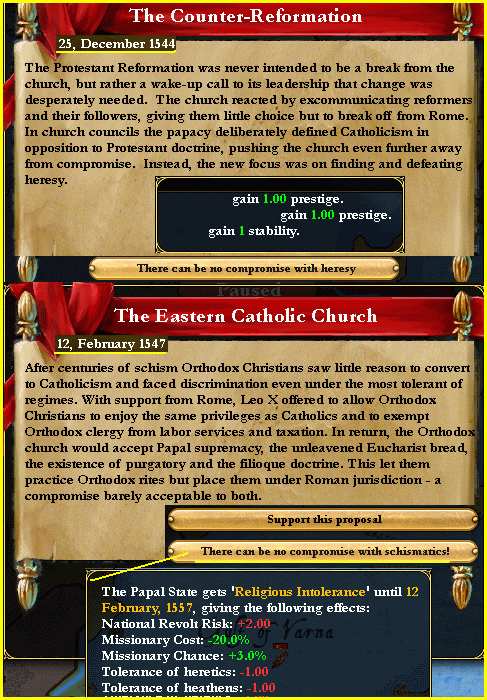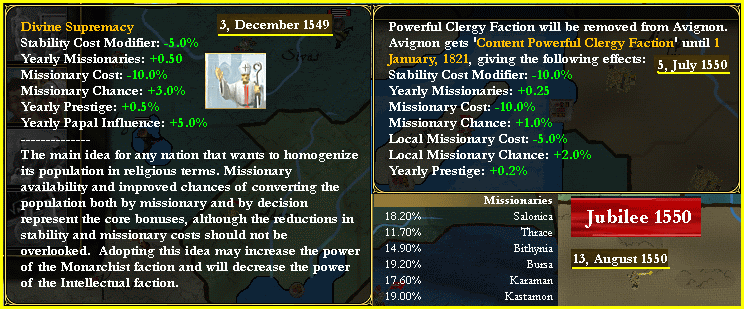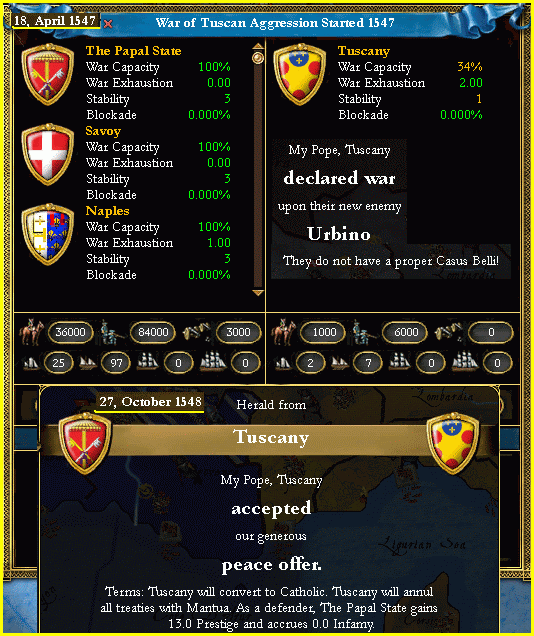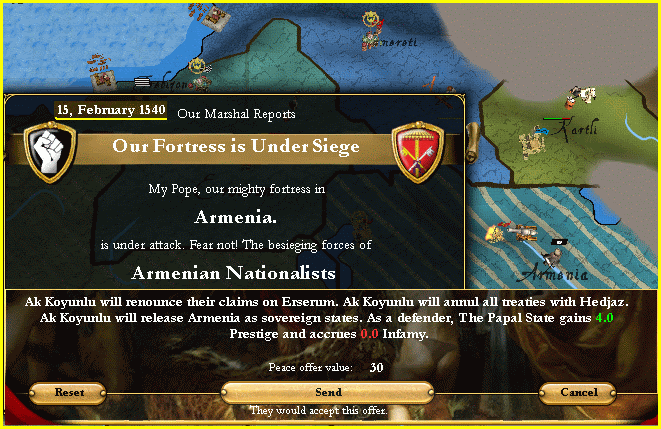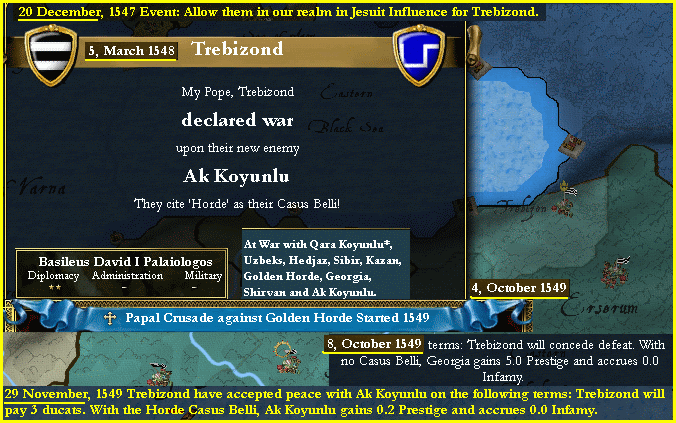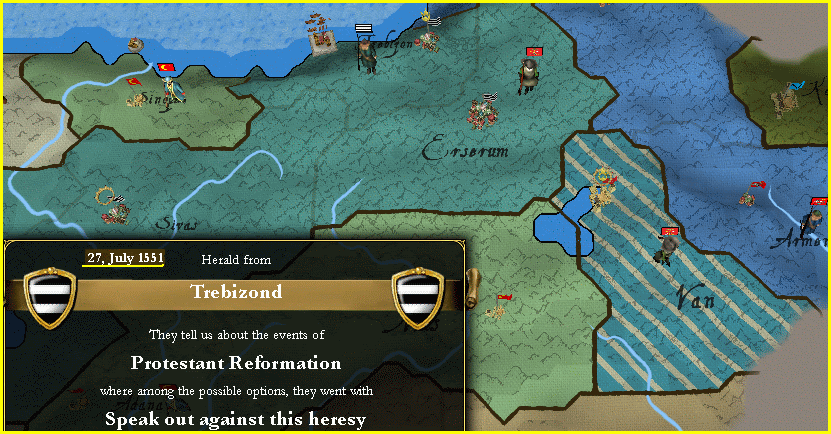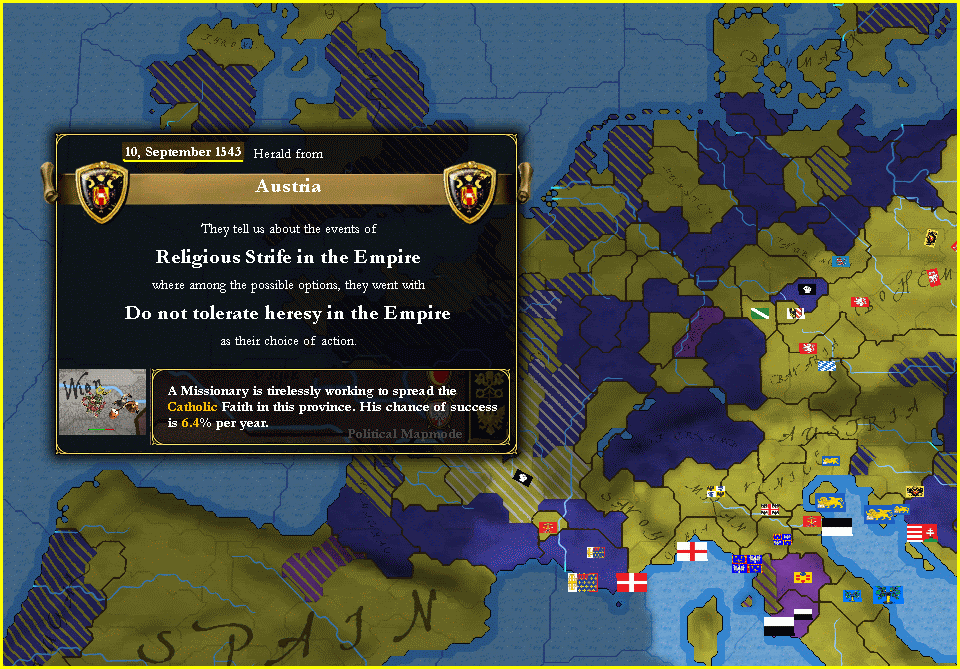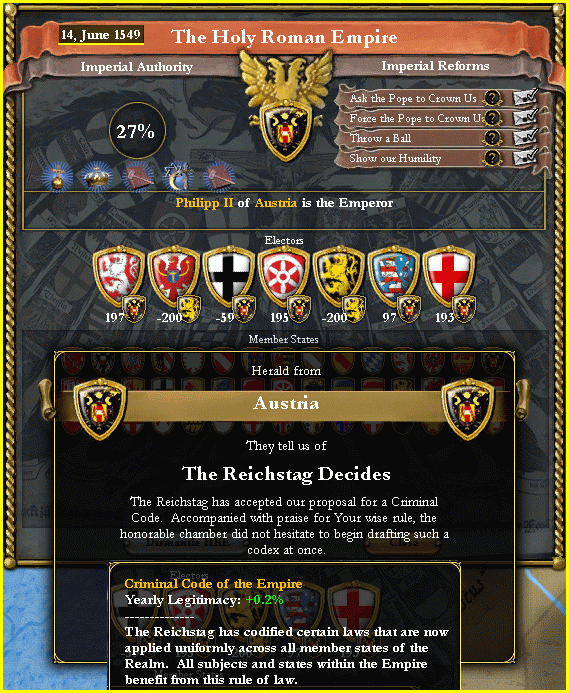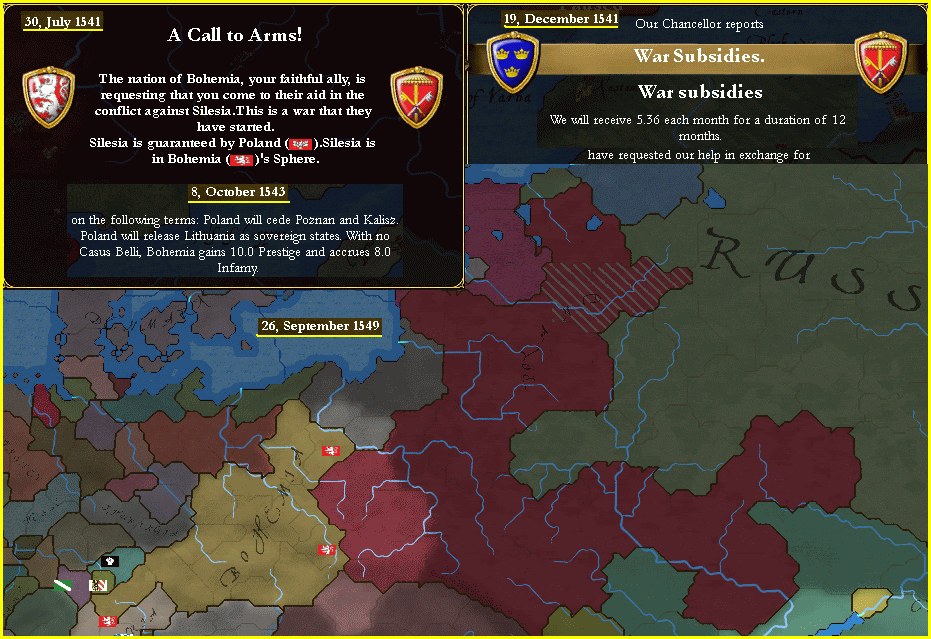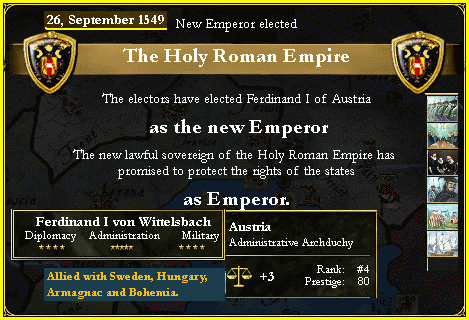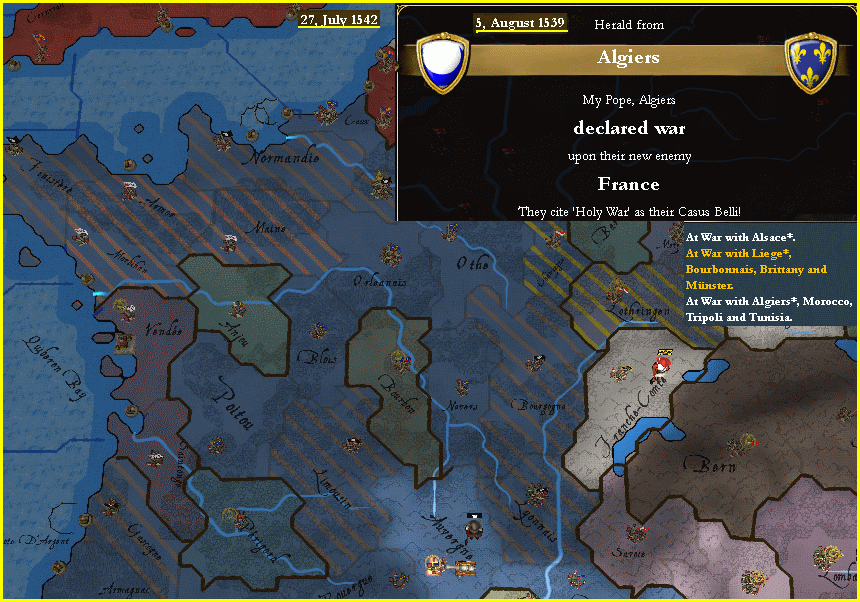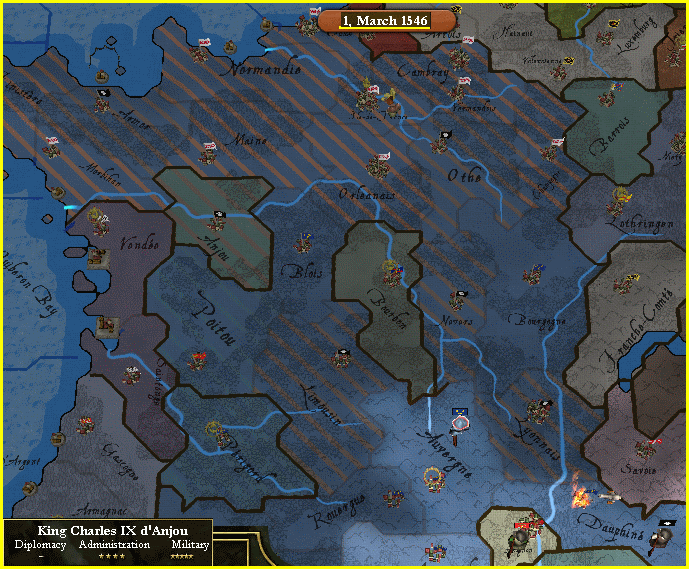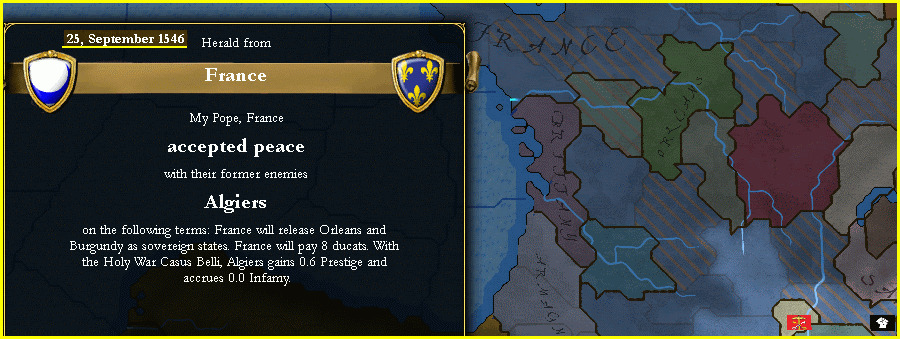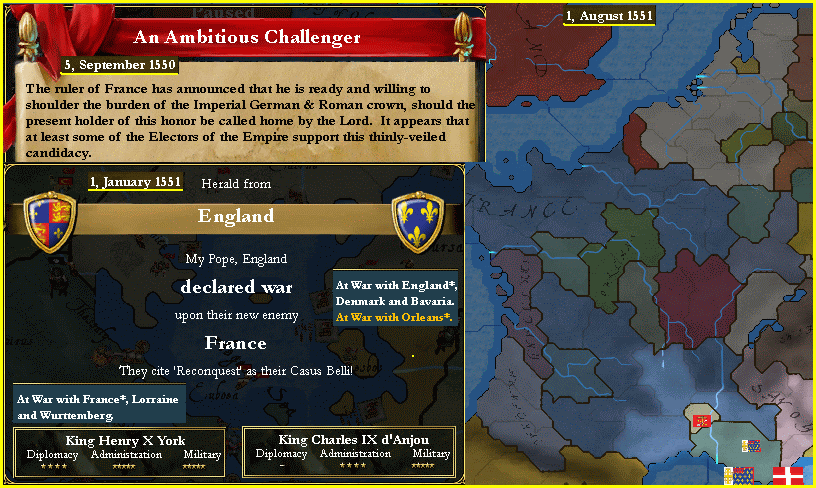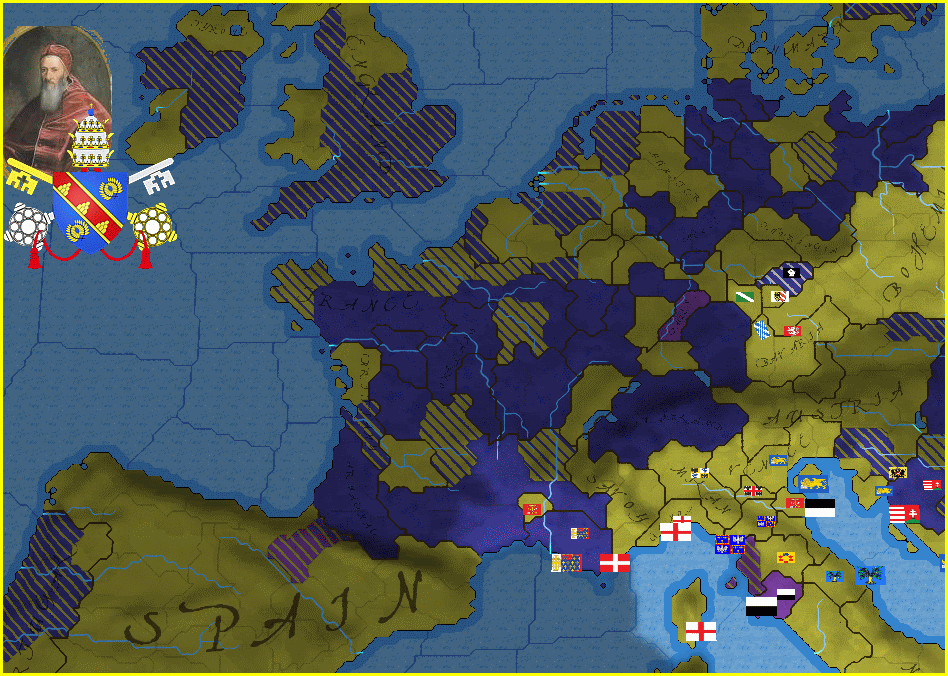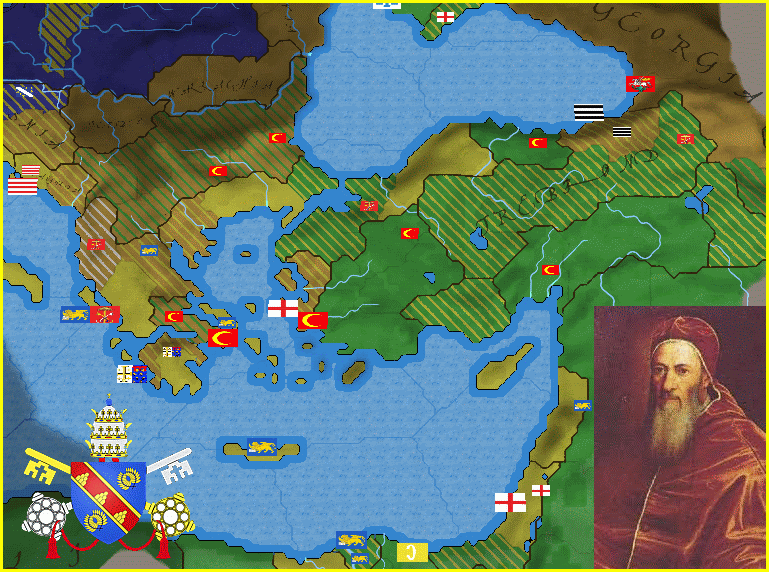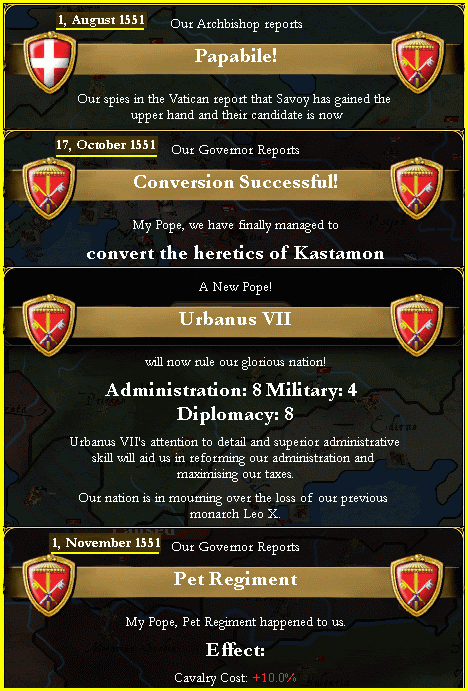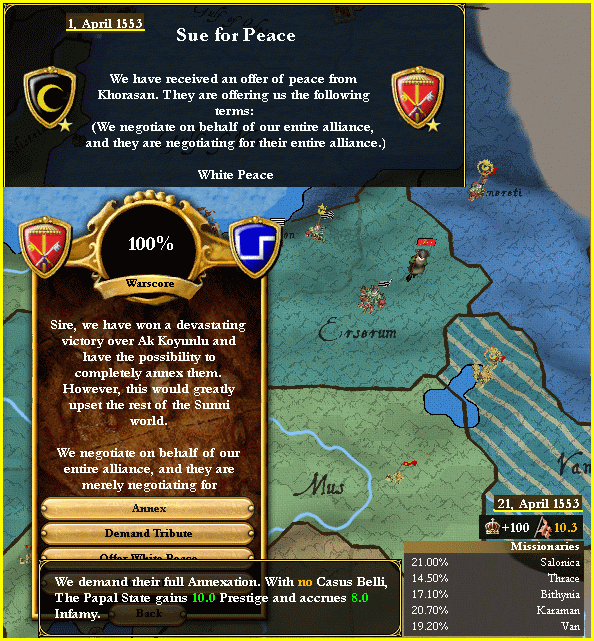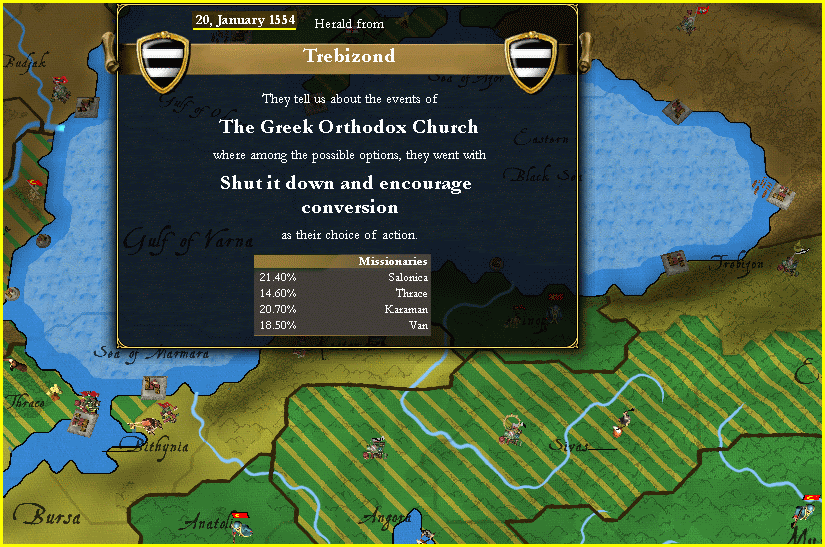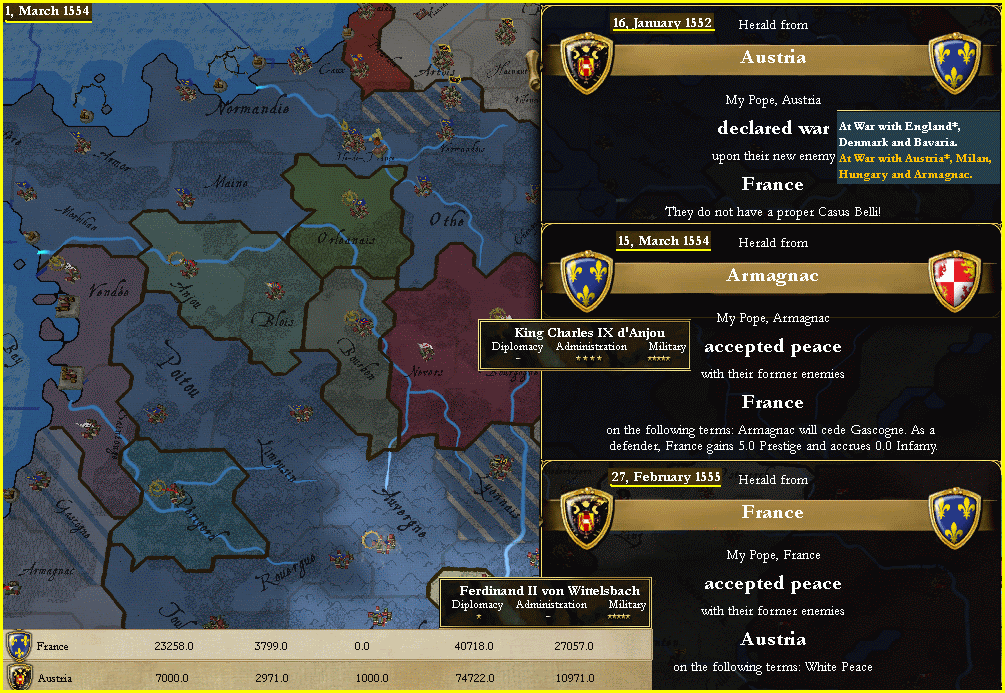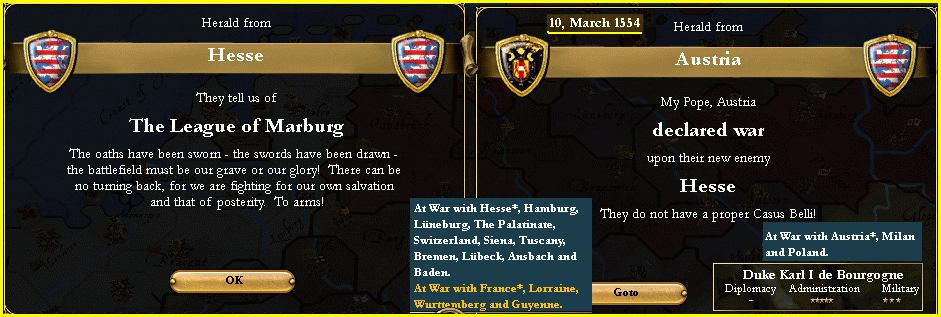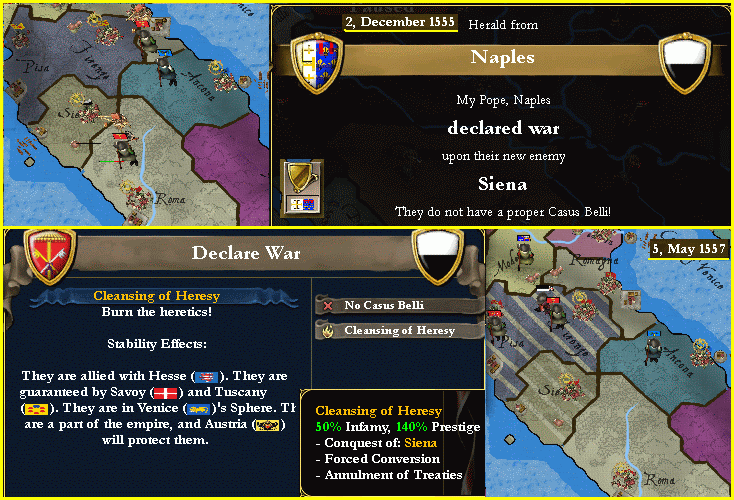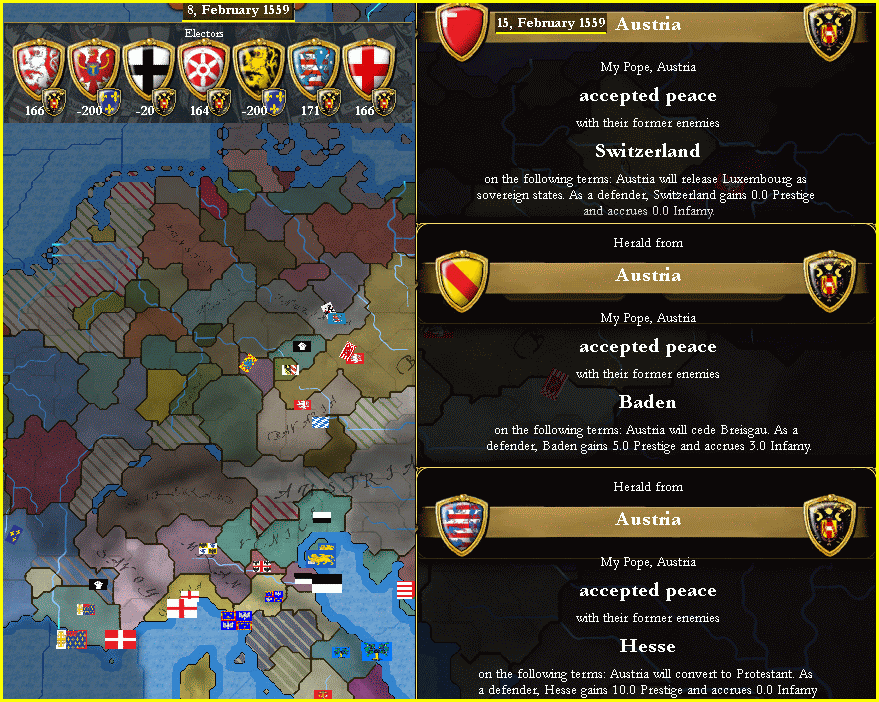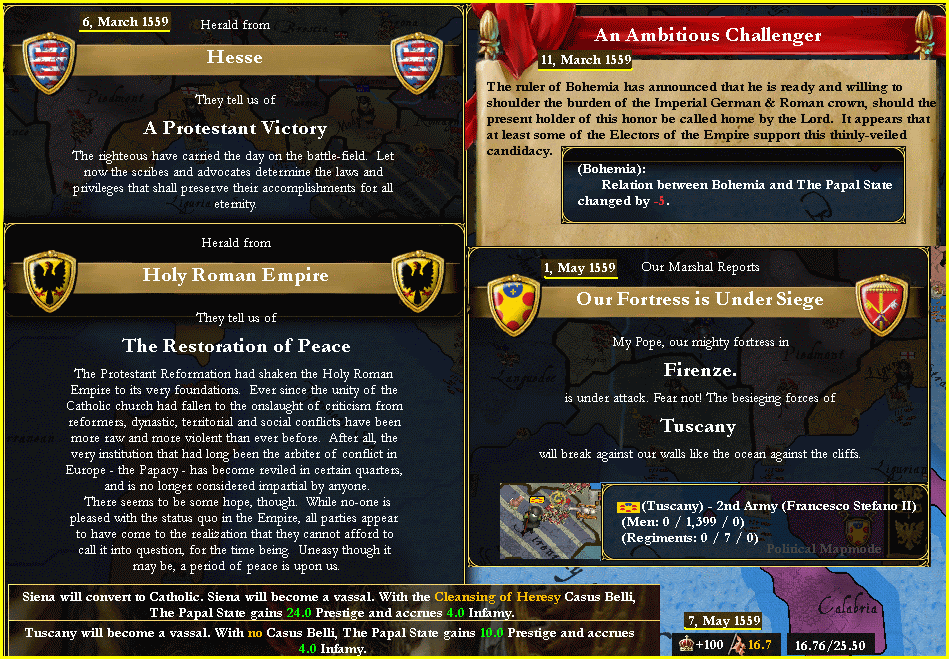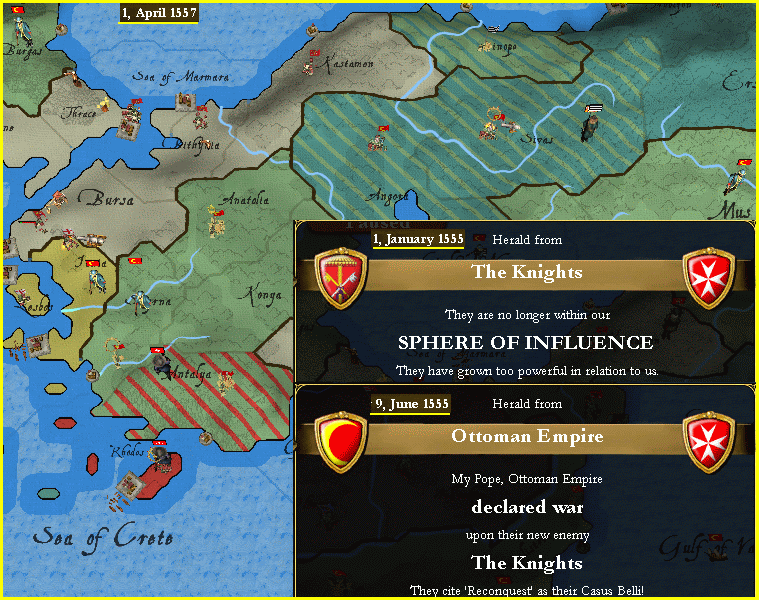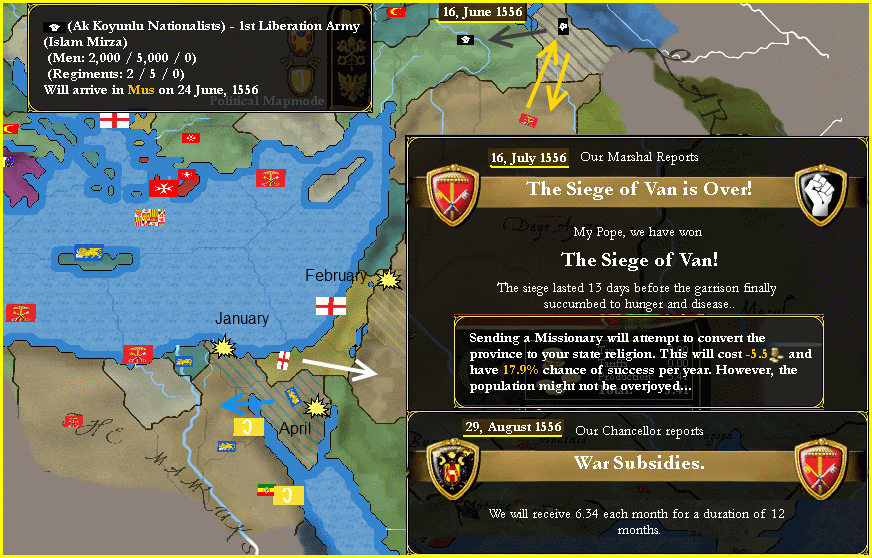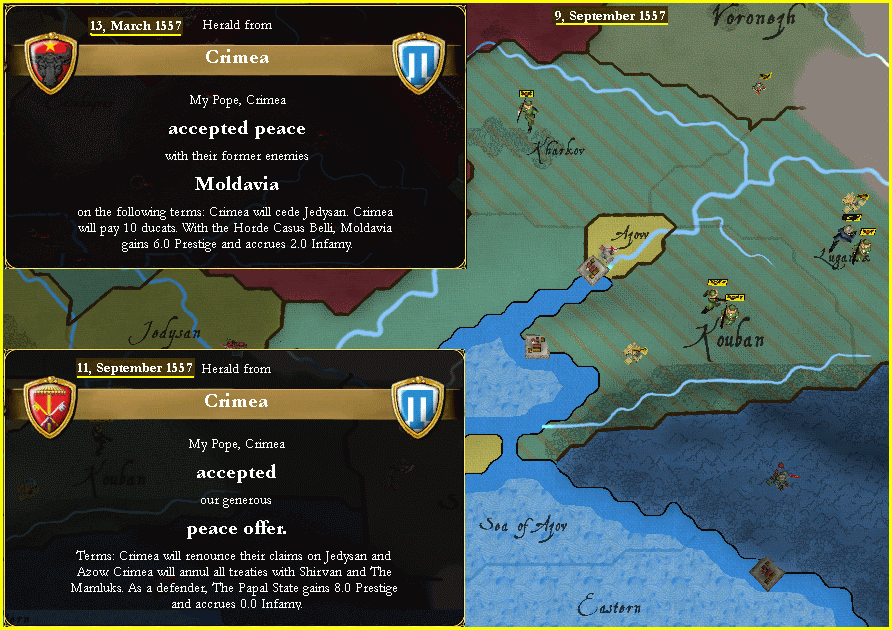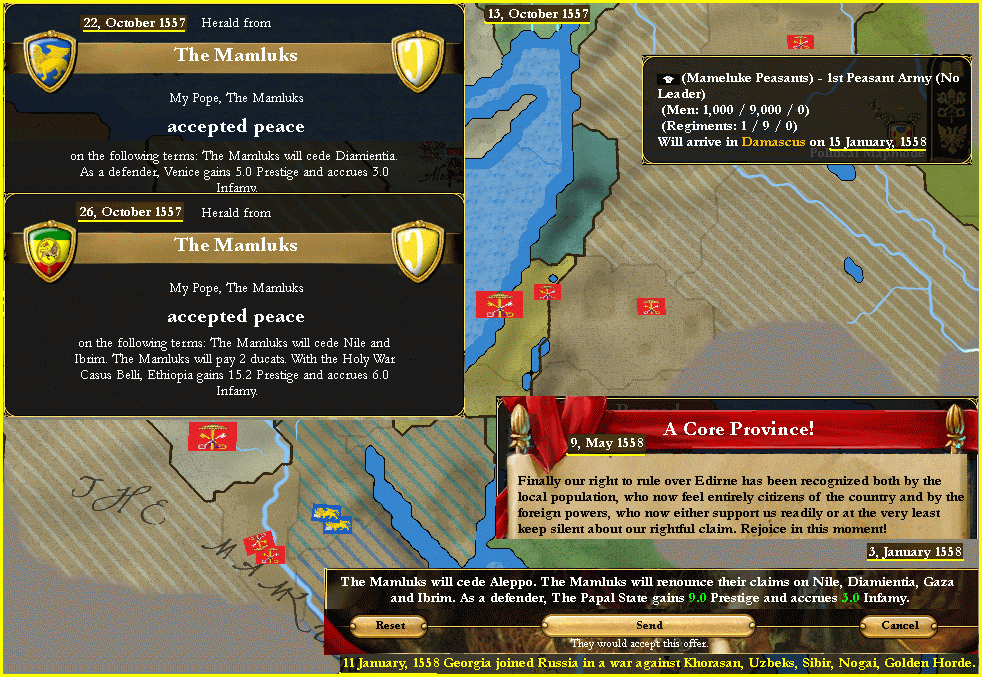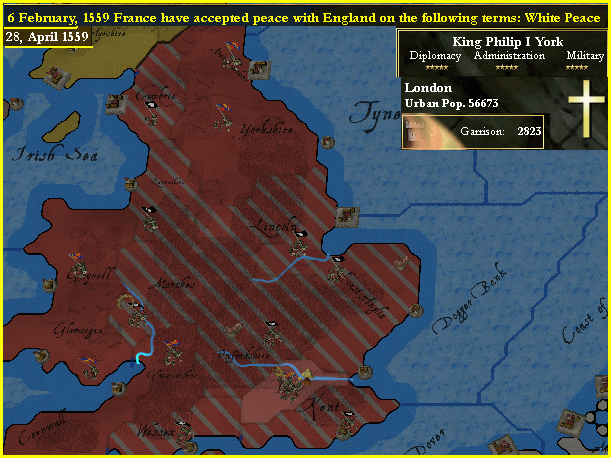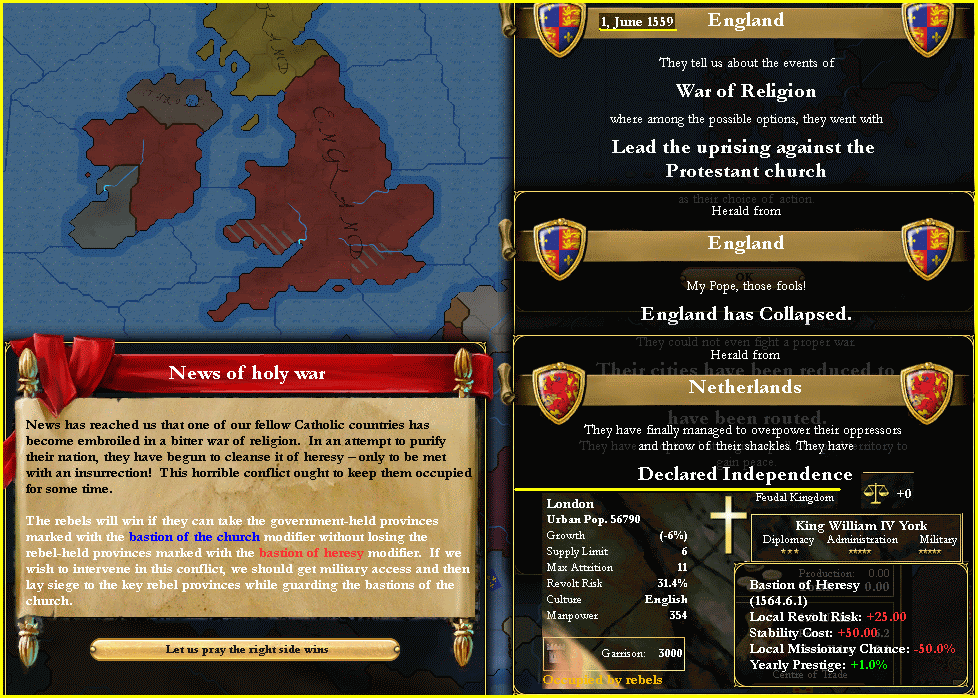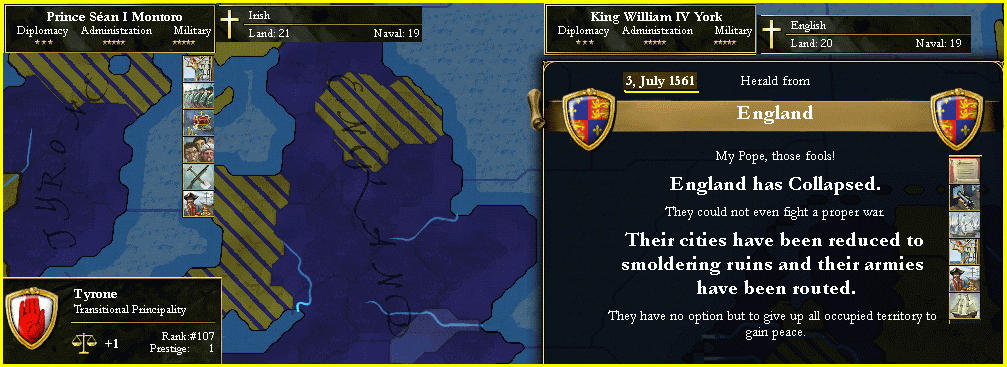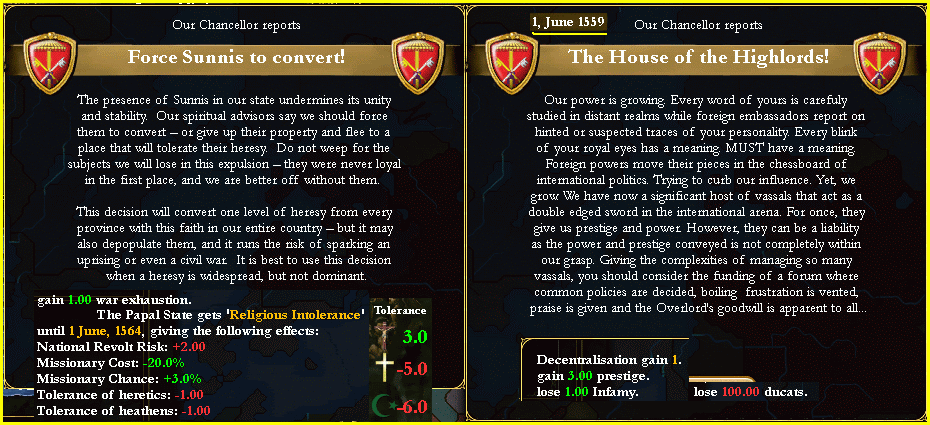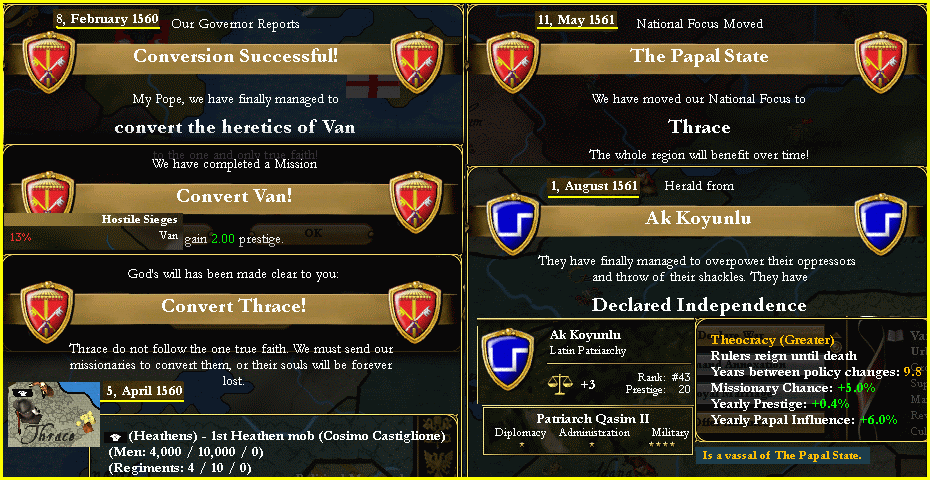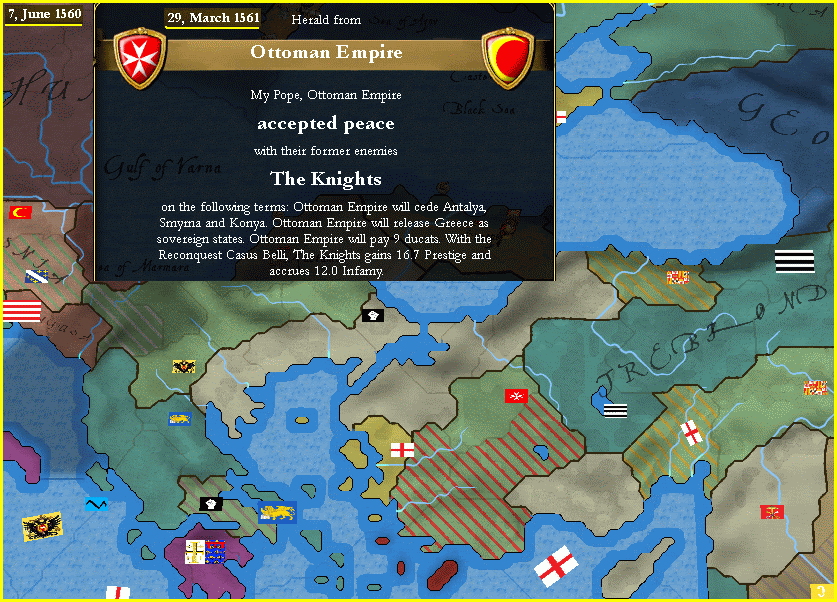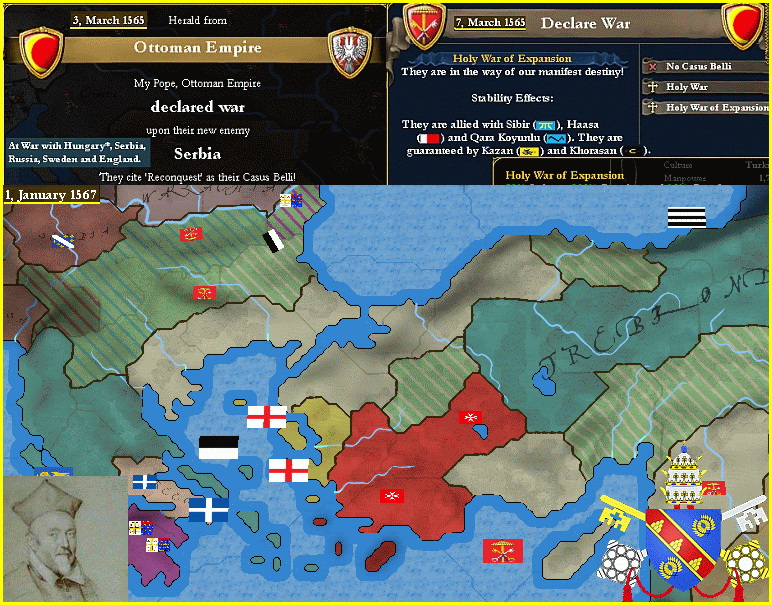Athalcor:
Btw, you are successfully resurrecting the lands of the Autocrator of All The East. (oh no, my Byzantophilia is not yet cured!)
Inadverently. I assure you.
 morningSIDEr:
morningSIDEr:
Trebizond's stupidity not withstanding.
I just can't understand AI, at times it sees a opm as an easy picking (where it is not), at times it lets an unprotected opm live undisturbed.

I like though that much of the blame is placed with Leo X and his shocking and rather scandalous favouritism of Innocenzo del Monte. It can only be hoped Innocenzo has some actual ability as the coming years are likely to prove all the more testing for Christianity.
Leo X's pontificate heralds the upheavals that will come with Innocenzo's rule.
Understandably people are happily paying to be blessed by Christian teachings!
And of course no one dares to call it corruption.

(btw check the MMtG latest DD)
loki100:
This legacy should have caused Innocenzo a number of headaches... had he not been such a reckless person.
 chals:
chals:
well, its no suprise that most of europe is going anti popism, as he has tried to keep reformers(and bibelcal christianity), away with the reforms he push for. I had hoped for more, mush more, as to see if it was an option to reform the church so much, that lutherism whoud die out. but here we go,
You know, I wasn't trying to stop the Reformation all that hard. I
think it's doable/possible; but neither me (my personal preferences) nor 'my' Popes wanted it (role-playing Popes who'd expect submission rather than compromise). I can tell you're right that Protestantism is on the roll and it's not the end of its march. Check Portugal, pbly the most surprising place to harbour the reformers.
Chris Taylor:
Your subjugation of Greece ought to make it easy for the remainder of Ottoman Europe (Bulgaria and... whatever has cores west of there) to seek independence.
Alas, so far there has been no Bulgarian nationalists.

I'm interested to see what (if anything) the player can do to combat Protestantism or encourage the Counter-Reformation. I tend to back the Protestants in my games so I don't really know how things evolve for Catholics, in terms of post-Reformation gameplay options.
I'll pbly disappoint you, as this will hardly be my goal. Maybe it's a bit illogical, after all I'm playing the Papal States.

But if given a choice, I'll pbly pick the option ensuring short-term bonus rather than thinking of the good of the true Catholic faith. Still, you've seen I conceded with the vernacular over Latin, supported the Inquisition so there might be some Counter-Reformation success. We shall see. Dei Gratia is a really elaborate system and a pretty cryptic too; so I hardly know what my choices will lead to.
aldriq:
While I agree with Chris about the eventual shift of focus, I think it'll be far too tempting for the new Pope to go first for the easy pickings left in Anatolia and Egypt. And who could blame him, if Europe no longer wants the Holy Mother Church, there is plenty of people to be persuaded in the East...
I could not agree with you more.
 all:
all: Real Life is a beast.

I had no time to work on the update. I might change the format of this aar to a more game-play type one. Time shortage! It's either simplifying it a bit or abandoning it altogether. Also, I do want to squeez Innocenzo's longish reign into one update even though it was quite eventful and there's 20 pics limit; so I'll have to leave some stuff out. I also have to admit to being a king of 'deus ex machina' during Innocenzo's reign and rather frequently intervening into the game/editing the save (and feeling a bit bad about it). Thank you for reading it and stay tuned. Next update hopefully in up to two weaks.


